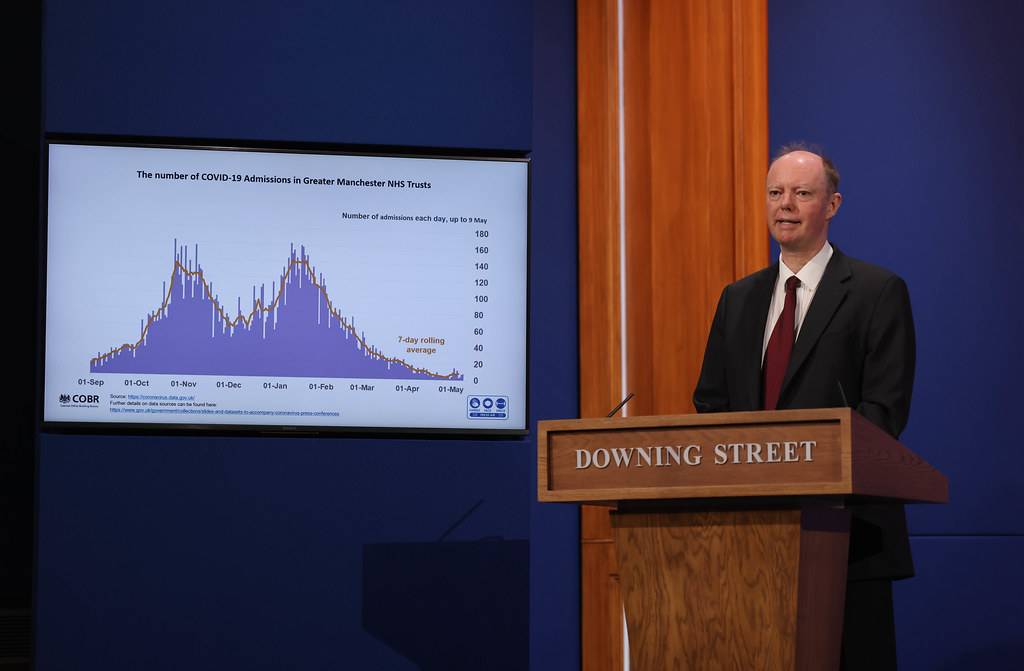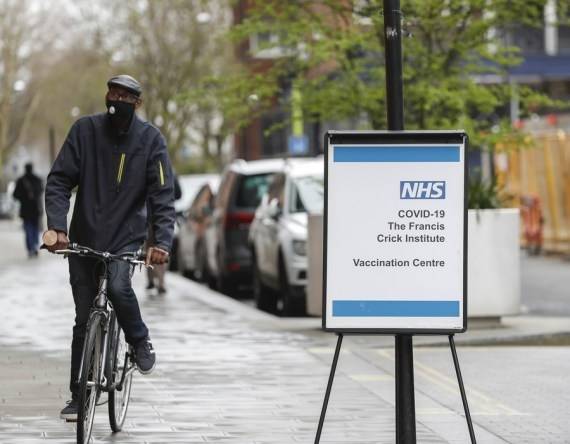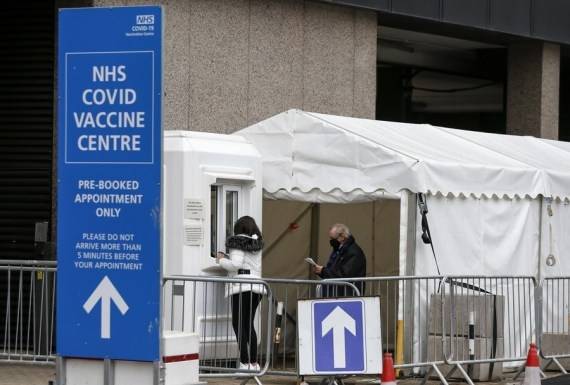
The health authorities have reduced the wait between Covid-19 jabs from 12 weeks to eight for the over-50s and clinically vulnerable over the new variant threat prevailing in the country, reports Asian Lite Newsdesk
Prime Minister Boris Johnson has warned that the Indian Covid variant could pose “serious disruption” to lockdown easing in England on 21 June.
Johnson said if it was found to be “significantly” more transmissible there could be “some hard choices”, the BBC reported.
Meanwhile, the health authorities have cut short the wait between jabs from 12 weeks to eight for the over-50s and clinically vulnerable over the new variant threat prevailing in the country.
Also Read – Pfizer-BioNTech vax very effective against UK, SA variants’
According to Public Health England figures, cases of the Indian Covid variant have nearly tripled in the past week.
Johnson said he did not believe that the “present evidence” showed a need to delay the next stage in the easing of lockdown in England on Monday – when pubs and restaurants will be allowed to serve customers indoors and six people or two households can meet in private home.

“I have to level with you that this new variant could pose a serious disruption to our progress and could make it more difficult to move to step four in June,” BBC quoted Johnson as saying.
“But I urge everyone to exercise the greatest caution because the choices we each make in the coming days will have a material effect on the road ahead,” he added.
The 21 June reopening is depended on government’s four tests being met – including that vaccines continue to be effective and the risks are not fundamentally changed by new variants.
Also Read – EU nations urged to halt travel from India
Meanwhile, another 2,193 people have tested positive for Covid-19, bringing the total number of coronavirus cases in the country to 4,446,824, according to official figures released on Friday.
The country also reported another 17 coronavirus-related deaths. The total number of coronavirus-related deaths in Britain now stands at 127,668. These figures only include the deaths of people who died within 28 days of their first positive test.

England’s coronavirus reproduction number, known as the R number, has increased slightly to between 0.8 and 1.1, up from between 0.8 and one last week, according to the government’s Scientific Advisory Group for Emergencies (SAGE).
It means that on average every 10 people infected will infect between eight and 11 others, the Xinhua news agency reported.
The latest growth rate range for the pandemic in England is estimated at minus 3 per cent to 1 per cent, according to official figures.
Also Read – Bharat Biotech ready to share Covaxin formula
“This does not necessarily mean R is definitively above one and that the epidemic is increasing, but that the uncertainty means it cannot be ruled out,” said SAGE. If the R number is above one, it means the number of cases will increase exponentially.
Four people in Britain have died with the coronavirus variant first detected in India, according to official data released Friday.
These are the first known domestic deaths from the new variant of the virus, now designated a “variant of concern”.
Public Health England (PHE) said cases of the variant known as B1617.2 in Britain have more than doubled to 1,313, up from 520 cases recorded by the PHE last week.

Scientists have raised concerns that the current vaccines may be less effective against the new variant, but the British Department of Health and Social Care said there was “no firm evidence yet to show this variant has any greater impact on severity of disease or evades the vaccine”.
According to the latest official figures, more than 36.1 million people in Britain have been given the first jab of the coronavirus vaccine.
Experts have warned that despite progress in vaccine rollout, Britain is “still not out of the woods” amid concerns over new variants, particularly those first emerged in South Africa, Brazil and India, and the third wave of pandemic on the European continent.
To bring life back to normal, countries such as Britain, China, Russia, the US as well as the European Union have been racing against time to roll out coronavirus vaccines.


